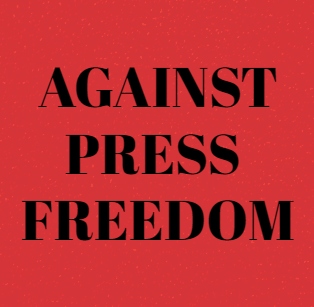

By Our Editorial Team
First publised on 2022-02-09 10:09:17
The Ministry of Information and Broadcasting has announced that the accreditation of any journalist will be cancelled if he or she is found to "act in a manner which is prejudicial to the sovereignty and integrity of India, the security of the state, friendly relations with foreign states, public order, decency or morality or in relation to contempt of court, defamation or incitement of an offence." This is not acceptable as it is against the freedom of speech and expression guaranteed by the Constitution in Article 19 and is a blatant attempt to muzzle the press.
The biggest worry is that all these terms are not properly defined and open to various interpretations. Since the ministry will be the sole arbiter of what constitutes an 'offence' as per the new order, it will cancel the accreditation of journalists who ask too many uncomfortable questions or pursue stories that are not to the liking of the ruling dispensation. In short, the ministry wants to grant accreditation only to those journalists who are comfortable to toe the official line and accept the official version of events.
The Ministry does not seem to learn from history. In 2018, it had tried to cancel accreditation of journalists over publication of 'fake' news but withdrew the order after protests. Then there was the infamous Defamation Bill introduced by the Rajiv Gandhi government that had tried to widen the scope of defamation and transfer the onus of proof on the accused. That was also withdrawn after huge protests.
These periodic attempts to 'bring' journalists in 'line' happen because the political class, cutting across party lines, is becoming increasingly intolerant of criticism. But the media has a job to do. Considered the fourth pillar of democracy, the media has to ask uncomfortable questions and investigate matters to get to the truth. It has to speak up for the marginalized and bring to the notice of the public if government decisions are arbitrary and violate due process. To treat journalists as anti-nationals for doing their job is wrong. Instead, the political class must learn to accept criticism.











